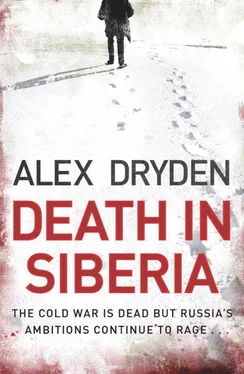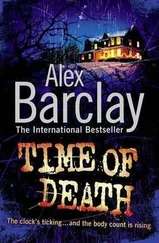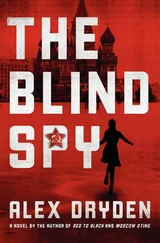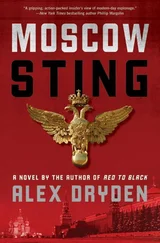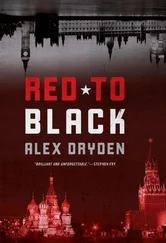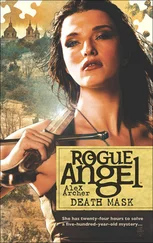Unfolding in his consciousness, and away now beyond his quarter, the rest of the Siberian city of Krasnoyarsk smoked incessantly, like an addict itself, from its towering industrial chimneys. And half a mile from the window, the great river glittered as if in anger at the foul factory substances it was forced to ingest. But Alexei Petrov had no critique about all of this, just a blank, calm acceptance.
He was finally brought back to physical reality by the kettle that had been whistling for some time behind him and he turned and filled the pot.
At thirty-nine years old, Petrov was of medium height, and an extremely strong and leanly muscled man of mainly native blood. His few Slavic features came from his Slav Russian father, as did his name, but these were almost obliterated by his strong, tribal Evenk ancestry. Certainly, apart from his mother’s and father’s brief union with each other, there may have been other encounters of a sexual kind, casual and violent, between his tribal family and the invading Russians ever since the Czar’s Cossacks surged across Siberia more than three hundred years before. But back then even bands of largely undiscriminating Cossacks might have baulked at a native woman who hadn’t washed for six months. And up until modern times the Evenk could disappear into the vast wastes of their once unpolluted Siberia where no one could follow.
Petrov had a sculpted, nut-brown face, with high, prominent cheekbones – a feature shared with the Evenk’s genetic relations in Mongolia. His eyes were set well back in his head and there was a kind of imprint in the centre of his forehead that looked like a faint, fleshy medallion. His straight nose and protected nostrils were an Evenki feature and his strong jawline had deterred many a potential antagonist who might otherwise have taken a swing at him. He had black, shiny, cropped hair, which he would have preferred long – over his shoulders – but which his militsiya position, he felt, prevented. His mouth was straight, with slightly prominent lips, and had not quite lost its once prodigious ability to laugh. Regular exposure to humorous situations, however, had hung by a thread for some time now.
It was his Russian father who had ruthlessly tried to Russian-ise him, ashamed perhaps that he had taken a native woman for a wife, and trying to compensate by beating the nativeness out of their son. When his father had finally sent his wife back to her own people – reindeer herders and fishermen way up beyond the Arctic Circle, north of one of the villages called Potapovo – he’d had Alexei’s papers changed. He’d claimed a Kazakh mother for him instead. At least the Kazakhs had a nation of their own and a useful one – after all, the Russians used Kazakhstan to test their nuclear bombs. But to Petrov’s father, the Evenk people had nothing; no country, no polity – no possessions – and as far as Alexei’s father was concerned, they therefore could not have any meaningful identity at all.
And so Alexei Petrov the police lieutenant was a man caught between two worlds and he floated in the melange they both created. One world was ancient, deeply traditional and governed by the spirits of nature; the other was violent, atavistic and responsible for much of the charnel house of recent Russian history that had laid the land and its own people to waste.
But in the mirror in his bathroom, Petrov the Russian thought he looked pretty good in his military-style police lieutenant’s uniform. He certainly looked tough and was known for being so in his quarter. Now ready for work, he wore the uniform, except for the jacket. That was hanging on a chair, impeccably cleaned and pressed, with its shining buttons and twin shoulder insignia of two yellow stars and a yellow dot on grey, all of which was bordered with neat red lines.
It was his nomadic ancestry that had made him naturally as strong as he was. But he had complemented that by rigorous training since his early youth. Now, aside from his sometimes strenuous police duties as an operativnik – detective – he played squash three times a week and ran half-marathons at weekends when he wasn’t on duty. He had even been a member of the national militsiya long-distance running team in his twenties and was given a trial for the Olympics sixteen years before, back in the middle of the 1990s.
But since his wife had died of some officially ‘mysterious illness’ two years before, which he suspected – no, which he knew – had been caused by a radiation leak at the military facility outside the city where she’d worked as a laboratory assistant, he had taken even greater care to look and to be fit. And sometimes he was ashamed of this, as if nowadays he were looking after himself in order to find another woman. Was it possible to betray the dead? Absolutely, was his resolute, Evenk conclusion. And betraying both the living and the dead was anyway a signature feature of the people who ruled Russia, the Kremlin’s spy elite.
While he waited for the tea to brew, he looked out of the window again – his mind now at rest in observance – and watched the icy river, swollen by melted snow from Mongolia to the south, that wound its way fifteen hundred miles to the north and into the Arctic seas.
In Siberia, he thought, as he often did with a certain morbid regularity, the bones of the dead millions still waited for the crimes committed against them to be acknowledged, let alone waited for a decent burial. The latter would never happen – he was sure of that, it was impossible now anyway. But, who knew, perhaps one day there would be a regime in Moscow that at least recognised the enormity of the country’s crimes against its own citizens. His own people, the Evenk, were merely an afterthought in Moscow’s mass murders, an almost accidental appendix, the swishing of the old Soviet monster’s tail.
He doubted, however, that an actual apology would ever intrude into the thoughts of the average state official in the twenty-first-century Kremlin, even for the Siberian slaughter of its own people, the Russians themselves.
He turned back to the kitchen counter and opened the can of fish which turned out to be an indistinguishable, rust-coloured mush. He thought that the contents were most likely a bouillabaisse of fishes’ heads, tails and arseholes. Whatever it was, it was all mixed up with a thick, gluey tomato-like sauce. Then he spread half the contents on to some black bread and poured the brewed tea into a chipped mug. As he was poised to take the first sip of the day, his mobile phone screamed into the silence inside his head.
‘ Da? ’
Young Corporal Temov was at the other end, finishing the night shift at the station.
The thought flashed across Petrov’s mind that soon his subordinate – a pale 23 year old with an ambitious urge to please his masters – would be promoted to his own level, and then, sometime in the future, above him.
At thirty-nine and with his general diligence and recognised crime-solving skills, Petrov knew that he should have been at least a militsiya major by now. But he also knew that it wasn’t just his ethnicity that stood in the way. He was guilty of an even worse offence against the state than that. He was guilty of avoiding becoming part of the ‘corruptocracy’ – the venal system that stretched from the top of the Kremlin to the lowliest traffic cop ruled supreme in all of Russia’s law enforcement agencies. In the myriad law and spy organs that sought to control, suppress, grow fat and, very occasionally, solve crimes in the country, there was no one who was more distrusted by the spy elite than a straight cop or a clean security officer – if you could find one. There was no one who came under more suspicion. Until he took his first bribe, Petrov knew he would remain forever a lieutenant.
Читать дальше
